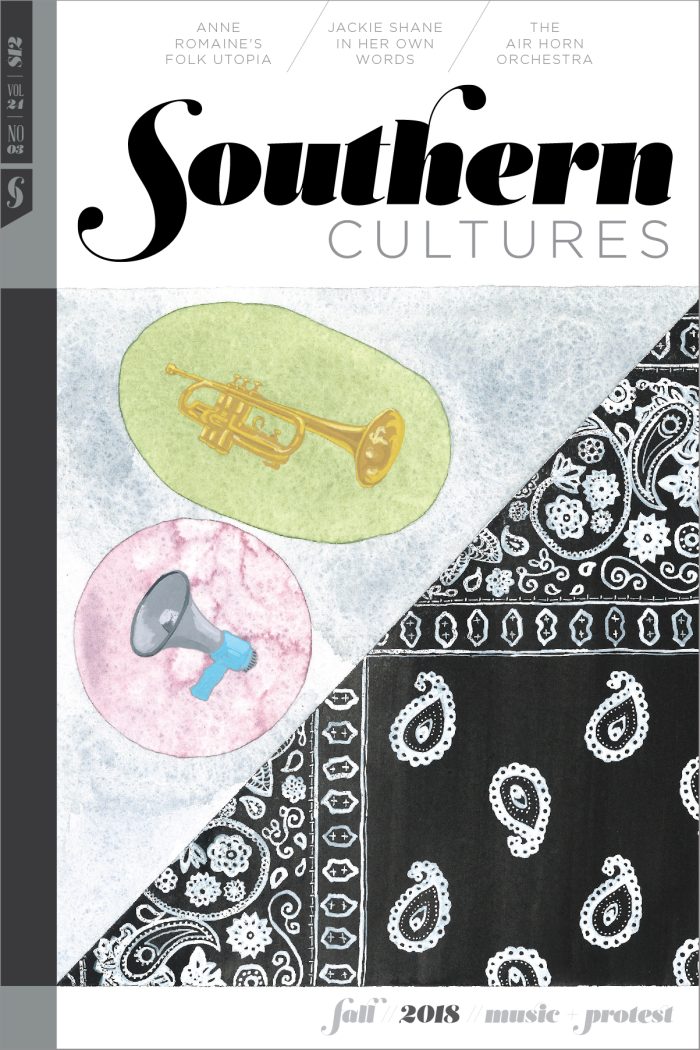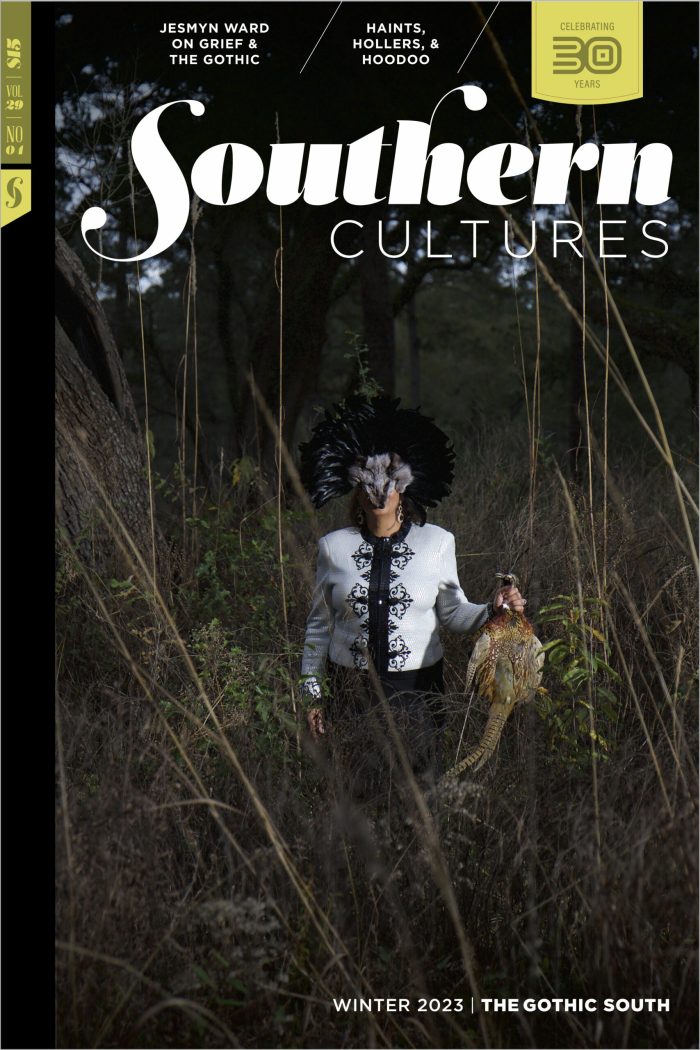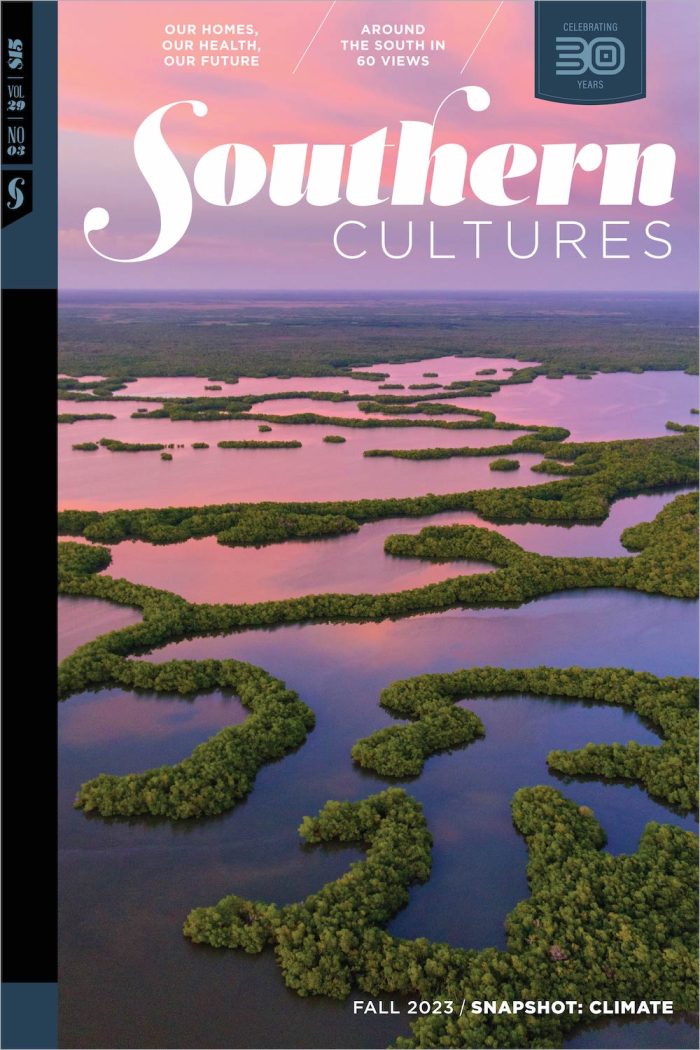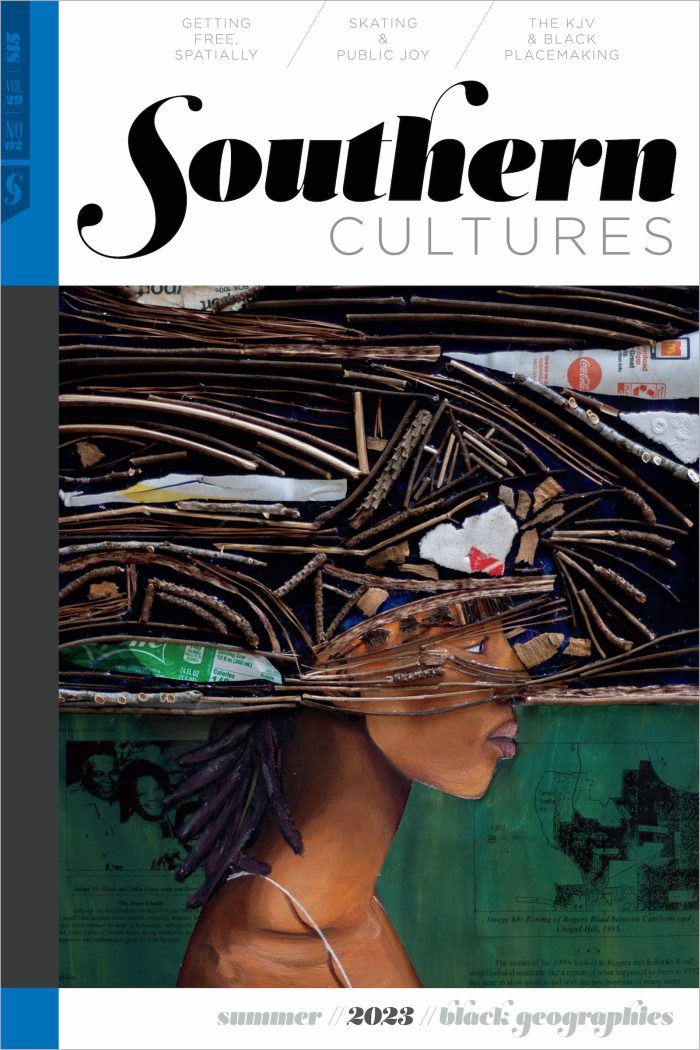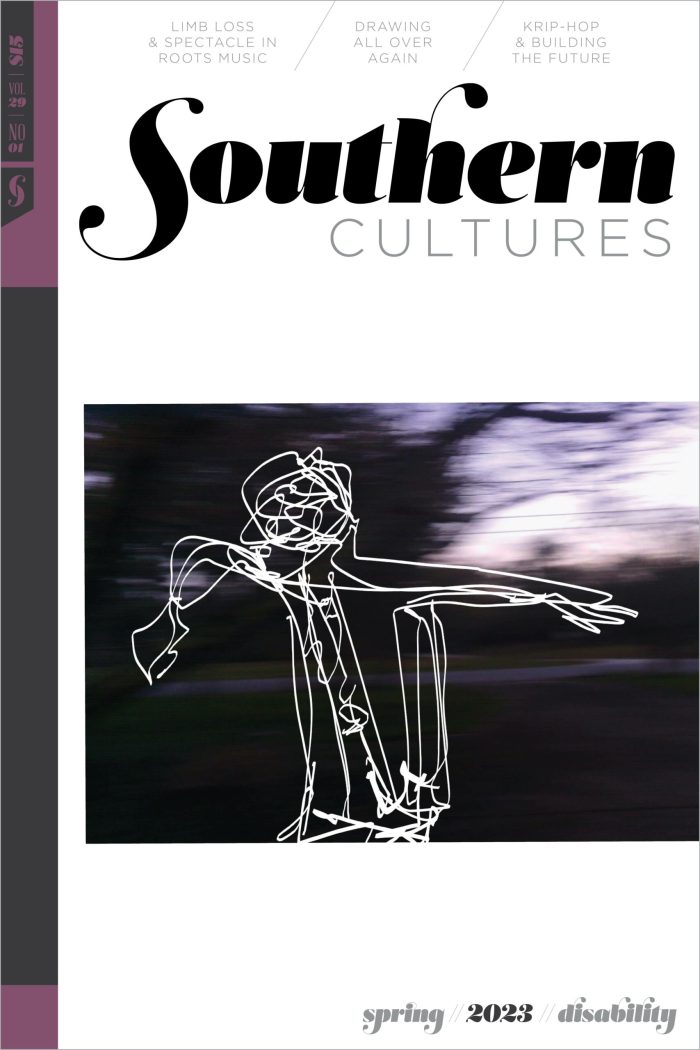Essay
BUY ACCESS
by Marcie Cohen Ferris
“Be prepared to stop and listen.” I was a high school student in 1970s northeastern Arkansas when my sister Jamie left home for college at Vanderbilt in Nashville. Quickly, we were pulled back into her force field as she sent news of exciting work at the intersection of social justice, health care, and labor by »
Music
BUY ACCESS
What I Learned from Gay Country, Communist Disco, and a Choctaw Poet’s Sermon on Immigration
by Brendan Greaves
“I first learned about . . . one of the most notorious instances of white supremacist violence in the post–Civil Rights era South from the B-side of an obscure 45rpm record recorded in Queens, New York.” As a kid—hell, for much of my adult life too, if I’m being honest—I hated so-called protest music. Weaned »
Music
It’s Just, “Yes Ma’am, No Ma’am”
by Douglas Mcgowan
Jackie Shane is not an easy person to interview. She was one of the greatest soul artists of the 1960s. (“The greatest singer who ever lived,” says Skippy White, dean of the Boston soul scene over the last half century or so.) Designated male at birth in Nashville in 1940, she openly began to identify »
Essay
BUY ACCESS
Anne Romaine’s Folk Music Protest in the New Left South
by Joseph M. Thompson
“Romaine’s vision of the South’s radical past, present, and future did exist, if only for as long as each concert.” Speaking in March of 1995, shortly before her death, Anne Romaine reflected on the folk music concerts to which she had devoted the past thirty years of her life. At fifty-three years old and with »
Music
BUY ACCESS
The Long History of “Birmingham Sunday”
by Julia Cox
“‘The problem right now is we have no anthem.’” Reflecting on her induction into the Rock & Roll Hall of Fame in 2017, folk icon Joan Baez was underwhelmed by the resurgence of protest music. “There needs to be more. It’s terribly important, because that’s what keeps the spirit,” she told Rolling Stone. “Carping and »
Music
Ornette Coleman in Copenhagen, 1965
by William Pym
As a teenager in 1940s Fort Worth, Ornette Coleman supported his family playing tenor saxophone on the radio and in regional clubs, honing woozy gutbucket rhythm and blues suitable for partying and abandon. “I was in the South when minorities were oppressed, and I identified with them through music,” Coleman told the philosopher Jacques Derrida »
Music
Outlaw Country and Outlaw Culture
by Max Fraser
The earliest documented exploration of a deep cave in eastern North America occurred roughly five thousand years ago, in the limestone-rich hills of the Upper Cumberland Plateau along what is now the border between Kentucky and Tennessee. Carrying torches lit with charcoal made from river cane, one or two small groups of hunter-gatherers entered a »
Interview
BUY ACCESS
Si Kahn, In His Own Words
by Si Kahn,
Brendan Greaves
“I’m in my fifty-second year as an organizer—civil rights, environment, labor, community. You know, if it moves, I try to organize it.” I’m walking down the hall in the Library of Congress, wondering what I’m going to do, and I see a sign that says, “Archive of Folk Music.” I went in the really raggedy-ass »
Essay
BUY ACCESS
The Air Horn Orchestra Blasts HB2
by Tina Haver Currin
“Fifty air horns could help change the course of an election.” The first time we set off the air horns, several of us got frostbite. We didn’t expect it, because we were standing outside of the North Carolina Governor’s Mansion in short sleeves, already contending with the sticky warmth of springtime. Giddy and naive, we »
Music
BUY ACCESS
Latinx Musicians and the Politics of Music in Charlotte
by Samuel K. Byrd
“‘We rock whatever hats we want.’” In the past decade, Charlotte’s Latinx rock musicians have moved from a politics of acknowledgement to a politics of engagement with the larger music scene and the city itself. A recent article about Latinx musicians on Charlotte’s Spanish-language news website Hola Noticias noted, “It’s been almost a decade since »
Essay
Rhythm and Resilience in Afro-Carolina Landscapes
by Michelle Lanier
“‘Rhythm is who we are—if we didn’t have that, how could we make it?’” The question is: How do I render sound visible? For me, the answer is ethnopoetics, a mode of presenting performance, ritual, and cultural expression through the tools of poetry. In its possibilities for mirroring moments, and reflecting the spaciousness and impact »
Music
by Tiana Clark
Argument How a Slave Ship was driven by capitalism and racism inside the triangle of the transatlantic slave trade; and of the strange things that befell; and in what manner Nina Simone came back from the dead to her own Country to stop a graduate student on the way to workshop. * * * I »
Music
Songs of Protest, 1913–2018
by Aaron Smithers
Hazel Dickens wrote “They’ll Never Keep Us Down” in 1976 for the soundtrack to Barbara Kopple’s Oscar-winning documentary Harlan County, USA. In Dickens’s lyrics, “they” are the rich men who prioritize profits over people, who “rob, steal, and kill” to maintain their power. Songs of protest have been around as long as humans have made »
